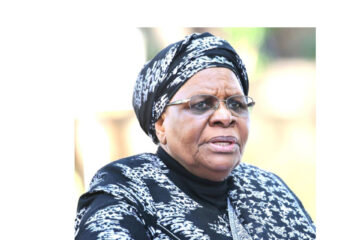The contract for printing Namibian ballots is now farmed out to South Africa. This is a mistake during this unique, crisis situation in Namibia. How can this country hope to revive if state funds, i.e., taxpayer money, are going to secure South African jobs? The government must invest at home, even if it seems to cost more (on the surface) to kick start the economy and save local jobs, businesses and families.
In this terrible economic crisis, the government must ensure that Namibia revives. The bottom line is that we need different avenues to invest at home to inject money into the economy.
Namibia has always been a small economy. Everything here is more expensive than in countries with a larger economy of scale, larger markets, and easier access to raw materials. Using ECN’s reasoning, this country should shut down local production and import it from South Africa or China.
Take note: South African printers always will bid lower than Namibian printers.
The ECN spokesperson states that the company selected to do the ballot printing has done so for almost all SADC nations. Do they not see that this is the exact reason they can afford to take a smaller profit margin (they make their money on volume) or even take a loss in doing the job? They will add the printing of Namibian ballots to their corporate CV. This marketing badge will be used to bid to leverage larger jobs where they can make up the profits that may have been sacrificed.
If we allow foreign companies to undercut local businesses in product contract we may as well accept full economic collapse as a result.
South African printers will always be able to produce cheaper than Namibian companies. South African ports receive the bulk heavy paper stock in Durban. The winning printer for the ballots is located in Durban. Logistics and shipping of that paper stock to their printing machines will be far lower than a Namibian company.
Civil servants who receive their salaries and benefits regardless of economic conditions, often have little knowledge, concern or understanding of private-sector challenges. Business contracts are needed for the enterprise to stay afloat. No business means no salaries are paid. The government cannot offer bailouts to entire industries. They must commit to using local businesses when the product is available at home, with less emphasis on the cost of the bid.
The spokesperson for the ECN quipped about whether tax-payers would rather pay N$4.9 million for the exact same thing they could purchase for N$1.9 million. The short answer is YES, in this specific desperate situation, the public would pay the higher immediate price to avoid the longer-term massive costs.
The hypothetical N$4.9 for printing the ballots at home could maintain 10 jobs, feed 50 people, support 10 households, and pay the bank loans of a local business. In such a scenario, the supposed ‘savings’ of N$3 million is well spent.
We insist that the cost of home loan defaults, business bankruptcies, car repossessions, and the destruction of households combine to cost government billions directly or indirectly. And yet the naïve ECN procurement officials feel proud that they ‘saved’ the taxpayers N$3 million. They didn’t save the country money; they cost us money. They are pennywise and pound foolish. In taking the lesser South African bid that appears to ‘save’ N$3 million they could well have cost us N$30 million.
Let the government pass a temporary restriction to prevent this from happening again. Let the government declare that in the short term during the pandemic and economic crisis, smaller government contracts go to Namibian companies. Of course, this can happen only when there are otherwise qualified multiple local bidders.
Foreign companies must not be allowed to compete for lesser contracts where ample Namibian companies can provide the same service. Let South Africa carry its own COVID era economic problems on its back and not on ours.



